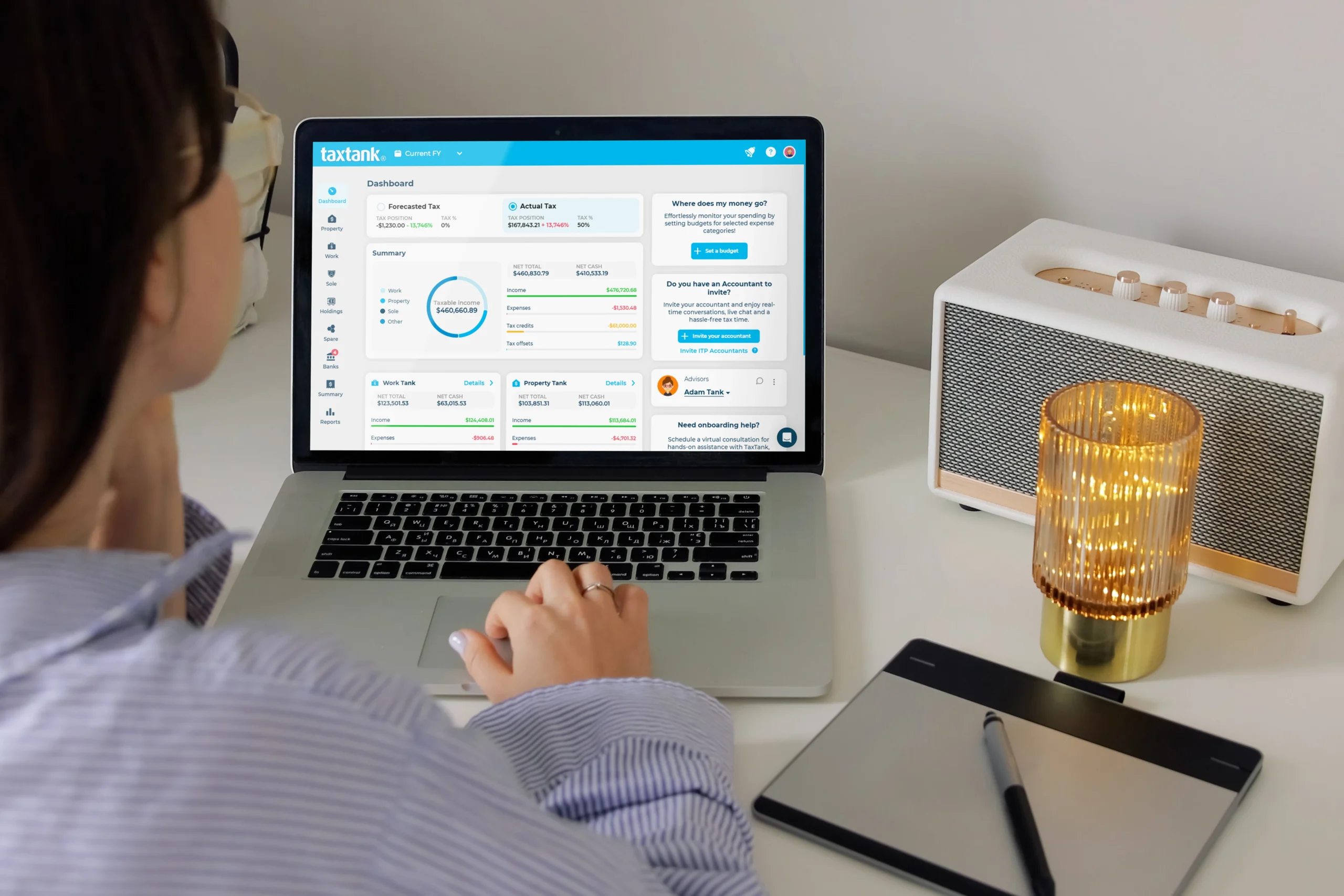In the ever-evolving landscape of financial management, efficiency and accuracy are paramount. If you’re a property investor, you understand the importance of keeping meticulous records of your investments – not only for keeping track of everything, but also to keep on top of your tax obligations. Traditionally the good old excel spreadsheet has been the go to for many to manage their investment properties by meticulously inputting data and crunching numbers. However, there’s now a game-changer in town: tax software.
In this post, we’ll delve into the benefits of transitioning from using an investment property spreadsheet to a purpose built tax software. We’ll explore how this shift can simplify your financial processes, improve accuracy, and provide valuable insights into your investments.
The Rise of Investment Property Spreadsheets
Investment property spreadsheets have long been a reliable choice for property investors. These spreadsheets offer a structured way to record property-related expenses, income, and calculate tax implications. While they served their purpose, they also had limitations, including:
Limited Automation
Spreadsheets require manual data entry and formula creation, making them time-consuming.
Risk of Errors
If you make a mistake and delete a formula, you could lose many hours of your data entry and this could lead to financial inaccuracies.
Lack of Scalability
As your investment portfolio grows, managing data in spreadsheets becomes increasingly cumbersome.

Embracing Tax Software
On the flip side, tax software represents a modern and efficient approach to managing your investment properties. These type of software solutions are designed with property investors in mind, offering a wide array of benefits:
Automation
Tax software automates data import and calculations, saving you time and reducing the risk of errors.
Comprehensive Reporting
Get a clear, real-time view of your investment portfolio’s financial health plus all of the tax reports you need to stay on top.
Scalability
Easily manage multiple properties and investments from a single platform.
Tax Optimisation
Leverage tax optimisation features to maximise deductions and minimise liabilities.
Making the Switch: Step-by-Step
Now that you understand the advantages of transitioning to tax software let’s walk through the process of making this switch seamlessly.
Evaluate Your Current Investment Property Spreadsheet
Before diving into tax software options, take a close look at your existing investment property spreadsheet. Identify the key data points, formulas, and reports you rely on. This assessment will help you select the right tax software for your needs.
Research Tax Software Solutions
The market offers a variety of tax software solutions, each with its unique features and pricing. Consider factors such as:
Integration: Ensure the software can integrate with your existing financial tools.
User-Friendly Interface: Look for intuitive software that doesn’t require a steep learning curve.
Customer Support: Access to reliable customer support can be a lifesaver when you encounter issues.
Data Migration
Once you’ve chosen your the software that’s right for you, the next step is inputting your data about your property investments. Most software solutions offer tools and resources to assist with this process. Ensure that all your data, including historical records, is easily added and updated.
FAQs
How do I choose the right tax software for my needs?
Choosing the right tax software involves evaluating your current spreadsheet, researching available options, and considering factors like integration, user-friendliness, and customer support.
Will migrating data from my spreadsheet be challenging?
Most tax software solutions offer tools to assist with data migration. With proper guidance and support, the process can be relatively straightforward.
Can tax software handle complex investment portfolios?
Yes, modern tax software is designed to handle complex investment portfolios, providing scalability and comprehensive reporting.
Will I still have control over my financial data?
Absolutely. Tax software provides you with more control by offering real-time tracking and reporting, ensuring you have full visibility into your financial data.
Are there any tax optimisation benefits?
Yes, tax software often includes features for tax optimisation, helping you maximise deductions and minimise tax liabilities.
How can I get started?
To get started, evaluate your current spreadsheet, research tax software options, choose the right solution, migrate your data, and invest time in training and familiarisation.
Final Thoughts
The transition from investment property spreadsheets to tax software represents a significant step towards streamlining your financial processes and gaining better control over your investments. With automation, scalability, and comprehensive reporting, tax software empowers you to make informed financial decisions and optimise your tax liabilities.
In the dynamic world of property investing, adapting to modern tools like tax software is the key to staying ahead. If you’re looking for custom-built software to help you manage your tax and properties in real-time, look no further than TaxTank. TaxTank is a smart cloud based software with live bank feeds and built-in automated tax tools to help you manage your investment portfolio live. Sign up for a free 14-day trial today.





